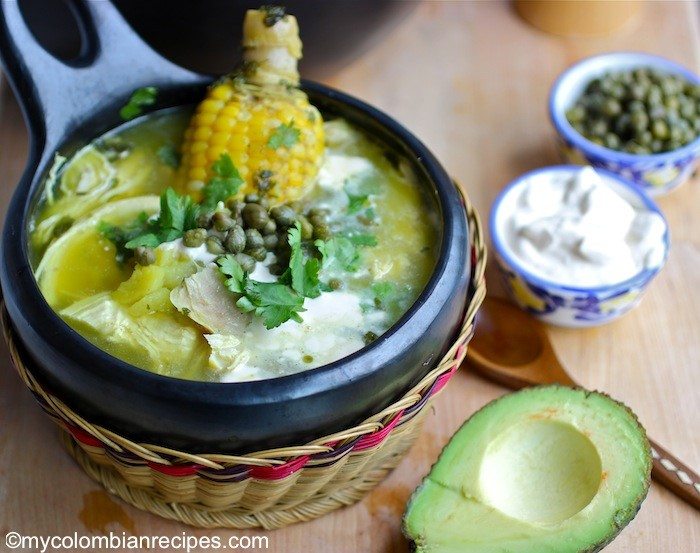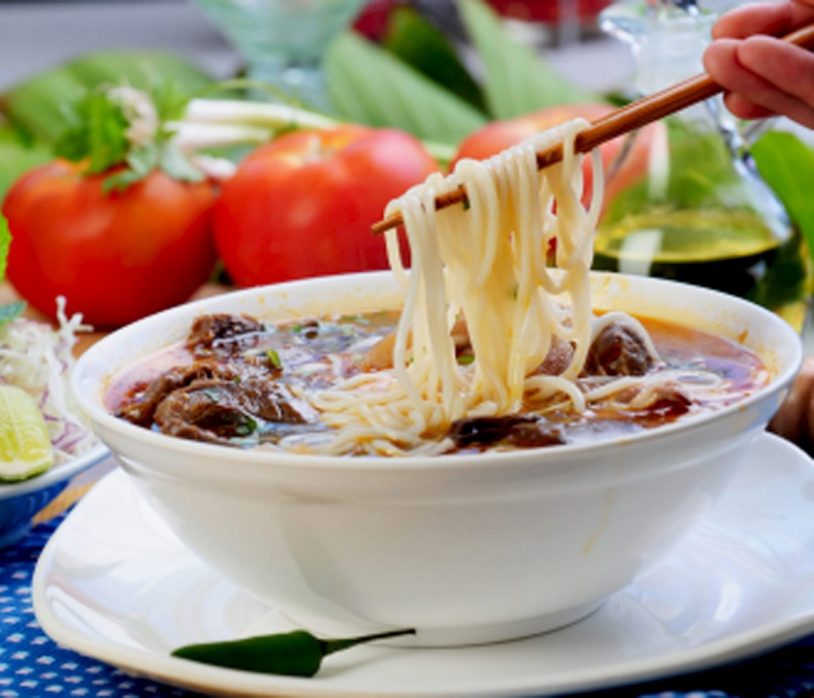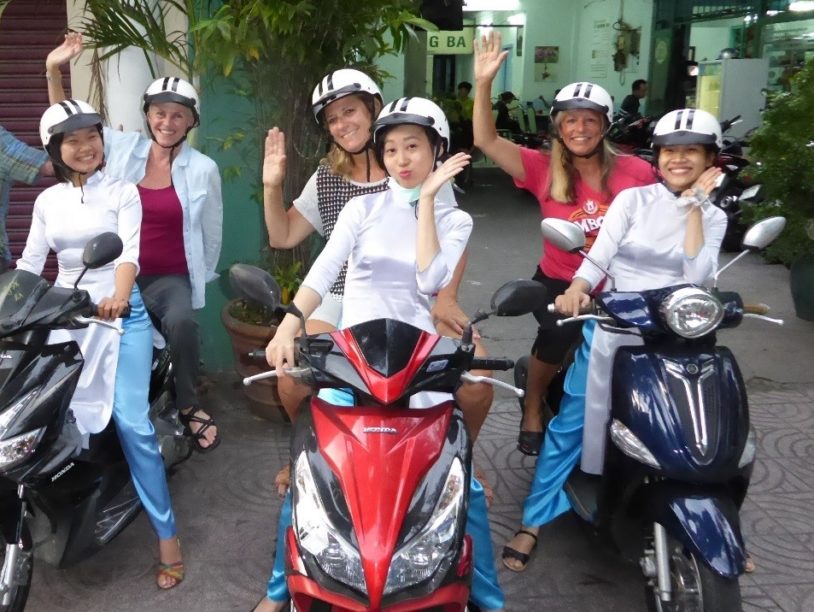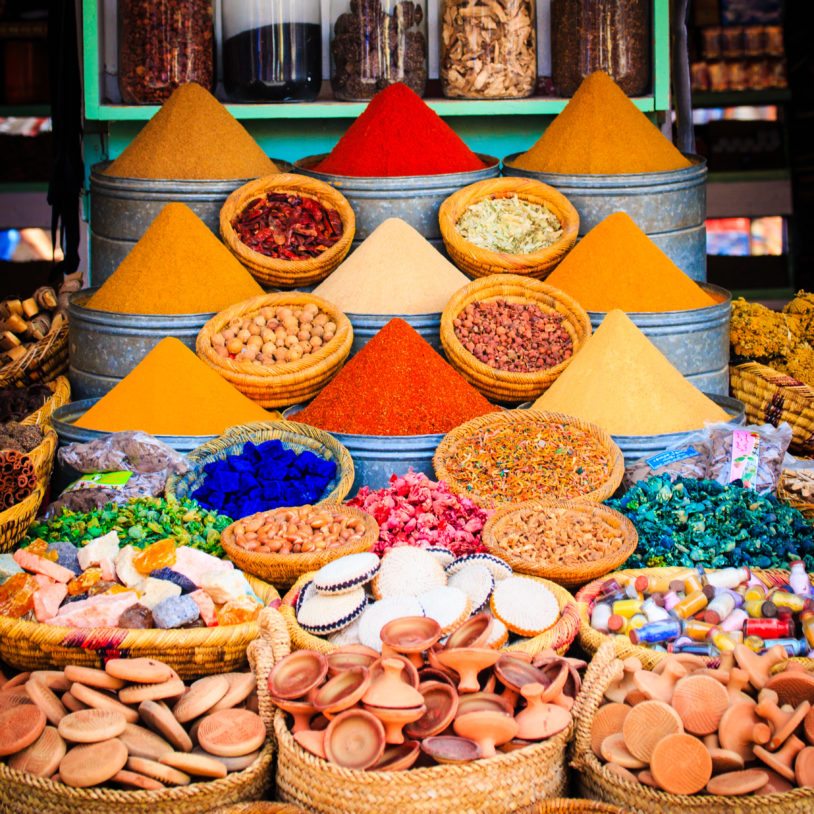“Food, glorious food…” is so much more than a line from the famous musical Oliver! At AdventureWomen, it is a MANTRA. We love it. Cuisine, whether at home or on our trips, is an important part of everyday, a creative outlet, an opportunity for learning and teaching, and most of all, a delicious way to start and end our days.
We thought we would highlight three of our upcoming adventures which feature a bit more on the culinary front, just in case, you’re another true “foodie” like us!
Colombia: “Cuisine, Whitewater & Antiquities” (October 2018)
Our active, multisport trip to Colombia is full of opportunities for you to sample the unique cuisine in this little-understood but fascinating country.
On day two, we sample a special Colombian menu featuring the best of the “santafereña” gastronomy, local to Bogotá, including the famous “Ajiaco”.
This soup is the ultimate in comfort food as it is made with the creamy, buttery papas criollas and two other varieties of potatoes. Guascas, a native mountain herb with an aroma somewhere in between bay leaf, catnip, and parsley, adds a distinct flavor (you can just use bay leaves and parsley). Large-kernelled, starchy South American corn (sometimes called Cuzco corn) is boiled along with the potatoes and eaten during the meal, as are slices of Avocado.
On our third day in Colombia, we take an afternoon cooking class at the Verde Olivo Culinary School.
Then on one of our last days, we get to sample “Seven Paradises” of street food, unnoticed by tourists but worshiped by locals. We then round out our trip in Colombia with the “literary foodie” experience called the “Gabriel García Márquez Menu”, a gastronomic tour in Cartagena which serves the dishes and drinks consumed by the characters in author’s Gabriel García Márquez novels.
Vietnam: “Culture, Cuisine, Boating & Biking” (February 2019)
Eating plays a huge role in Vietnamese society, and a time-honored Vietnamese proverb says, “learn to eat before learning to speak.” Although Vietnam’s cuisine has historically been influenced by the colonial influences of both the Chinese and French, the country is almost totally self-sufficient in the ingredients used in Vietnamese cooking including fresh vegetables and herbs, many, many varieties of rice, locally-farmed fresh fish and seafood of course, the uniquely Vietnamese fermented fish sauce, “nuoc mam”.
On Day Six of our Vietnam trip, we travel to the city of Hue and meet one of the locals whose wife is an outstanding cook. She will treat you to some of the traditional Vietnamese dishes whose recipes were designed to impress the Emperor at the time. Make sure you peek into the kitchen – it’s amazing what she can do in that amount of space!
On Day Eight, we put on our chefs hats and learn about local flavors in a Vietnamese cooking class. Together, you will make a three-course meal for lunch (and eat it of course!). What will you choose? Spring rolls, dumplings, hot pot?
We end our trip in Ho Chi Minh City (Saigon) where we get to take the famous XO street food tour by motorbike. Not to worry, you won’t be driving! Your guides will take you to the many diverse districts in HCMC, sharing with you a progressive dinner along the way and lots of history and cultural tips. You’ll get to taste multiple different delicacies and have fun with your AdventureWomen friends speeding along on your motorbikes as you weave through the city!
Morocco: “Sahara Sands, Markets & Cuisine” (September 2018/March 2019)
Morocco is so colorful and the spices add so much to each different dish you sample – from the mint in your tea to the cumin, turmeric, cinnamon, coriander, cayenne and paprika in your couscous.
In the afternoon on our fifth day, you can either enjoy a pottery workshop or choose to dive into a cooking class where you will learn how to make excellently spiced (but not too spicy!) local Moroccan dishes.
Then on day ten, you’ll spend the afternoon with a local family and learn about the lifestyle of the native Berbers while you learn how to make traditional mint tea and how to cook a typical Tagine for dinner.
For the finale of our Moroccan adventure in Marrakesh, our group will dive into a private cooking class where you can get more hands-on experience preparing a traditional Moroccan dinner, complete with delicious Moroccan wine.
If you’re a foodie, don’t miss these wonderful opportunities in Colombia, Vietnam and Morocco to indulge yourself while adding to your culinary repertoire, experience and know-how!





